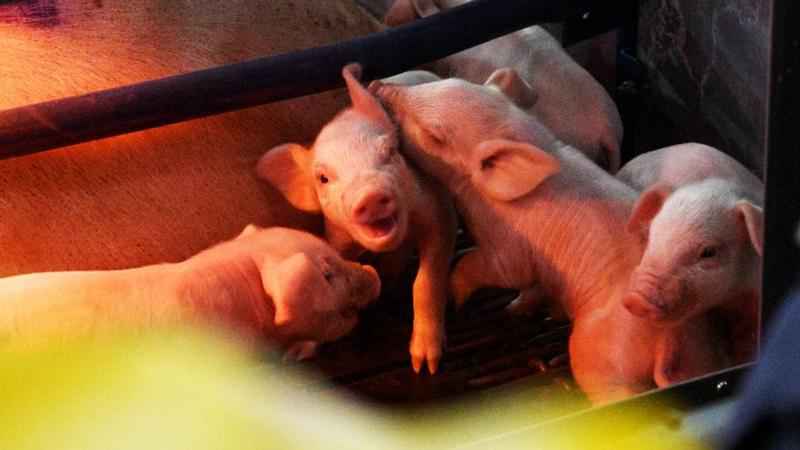Settlement reached in 2019 lawsuit filed after boy contracted E. coli at state fair

A file photo of piglets at the Miracle of Birth Center at the state fair.[KSTP-TV]
A settlement has been reached in a 2019 lawsuit filed after a then-4-year-old boy contracted E. coli at the Minnesota State Fair.
Claims were resolved through mediation, according to a court document filed earlier this month.
Christina VonderHaar filed the lawsuit against the Minnesota State Agricultural Society, identifying herself as the boy’s parent.
VonderHaar claimed that the boy contracted E. coli after visiting the fair’s Miracle of Birth Center, which allows visitors to "pet and feed ruminant animals, including calves, lambs, goats and piglets."
VonderHaar claimed the boy "touched and felt several types of animals" during the visit to the center that August, adding the boy "also had direct contact with ground, ground covering, food, and objects contaminated with fecal matter containing E. coli."
The boy was taken to the emergency room days after the visit and was admitted to the hospital where it was determined he had contracted E. coli. He was transferred to Children’s Minnesota in Minneapolis and remained there for nine days.
The lawsuit claimed the Minnesota State Agricultural Society "was negligent in the operation, maintenance and control of the Minnesota State Fair and otherwise failed to properly implement measures to reduce disease transmission to people on the fair premises."
In September 2019, health officials said at least 11 people became sick from E. coli infections after visiting the Minnesota State Fair that summer.
At the time, the Minnesota Department of Health (MDH) said six of the ill people were hospitalized, and one had developed a potentially fatal complication. Cases ranged in age from 2 to 43 years old.
The department worked with fair officials to trace the source of the outbreak but stated contact with livestock was the most likely factor.
MDH reported most of those who became sick visited the Miracle of Birth Center and had contact with calves, goats, sheep or piglets. But some did not have contact with animals and may have been exposed by touching contaminated surfaces.
The Associated Press contributed to this report.